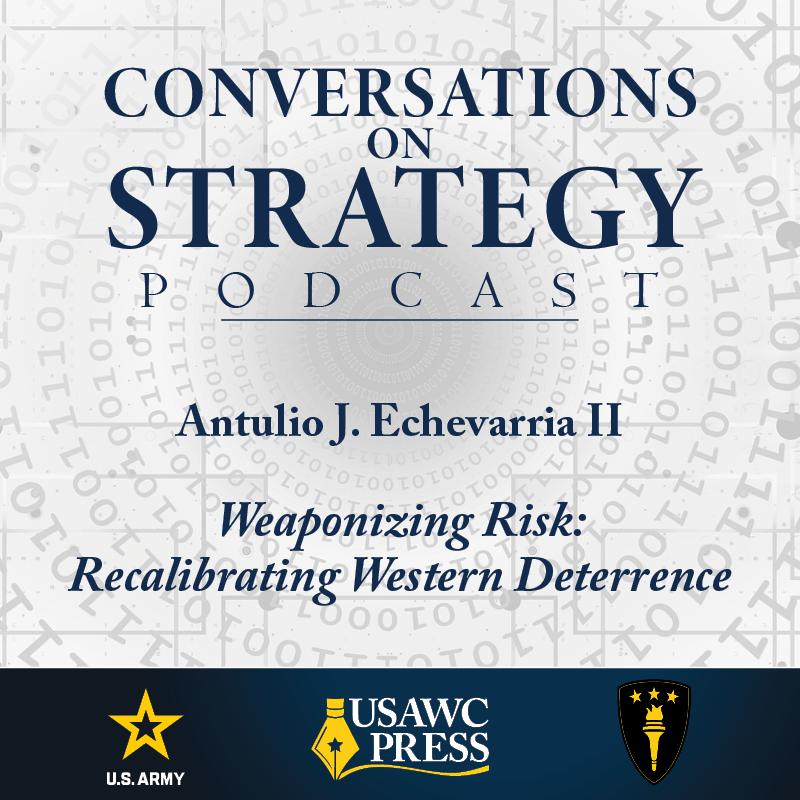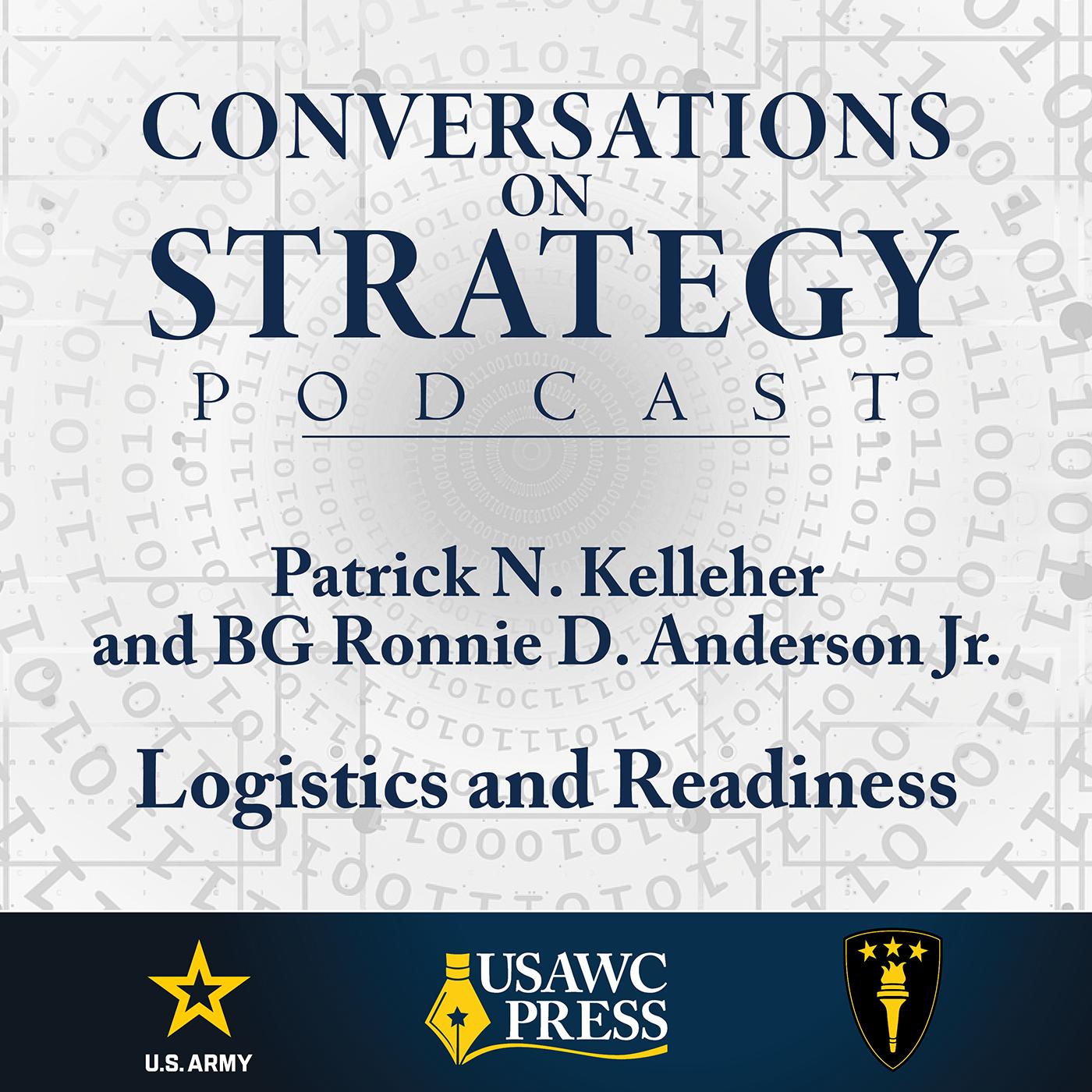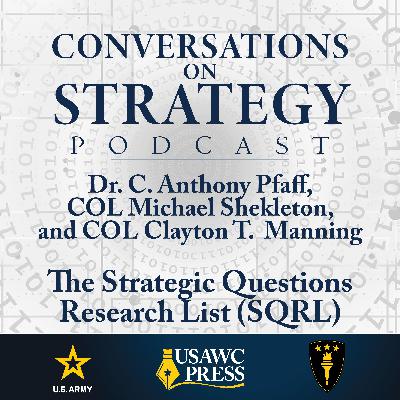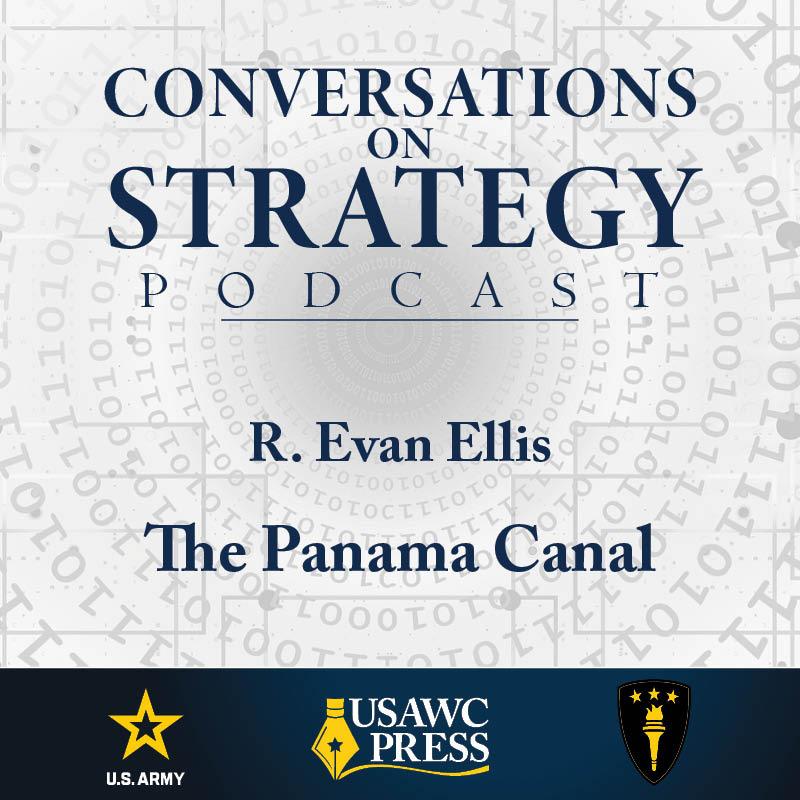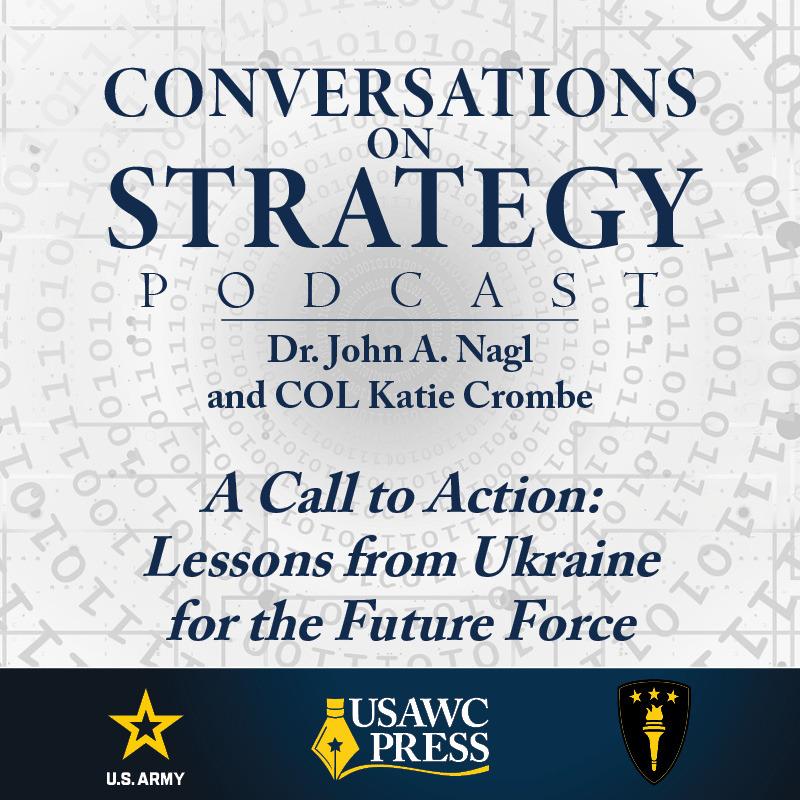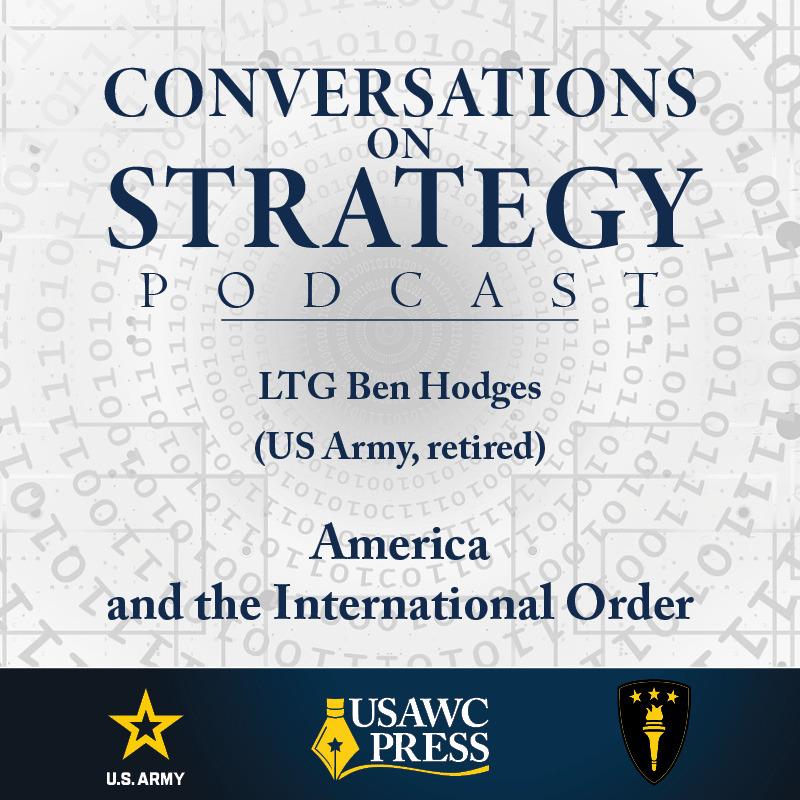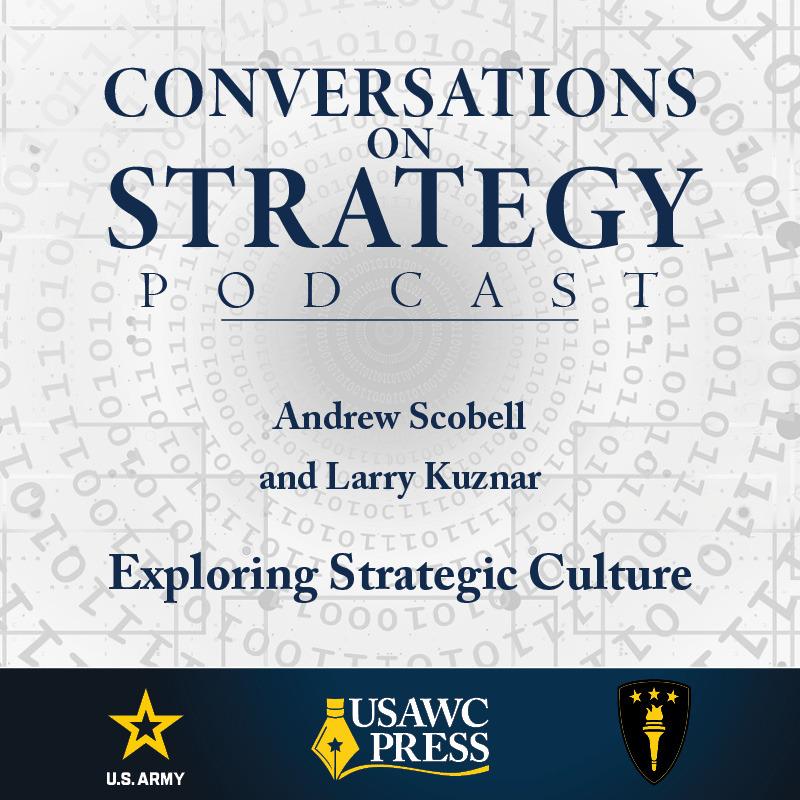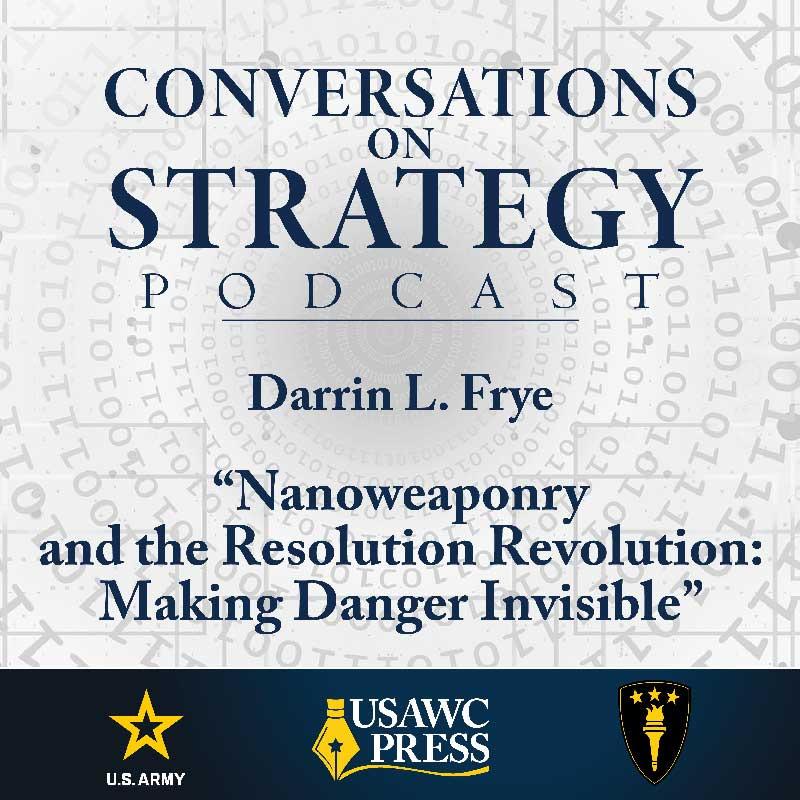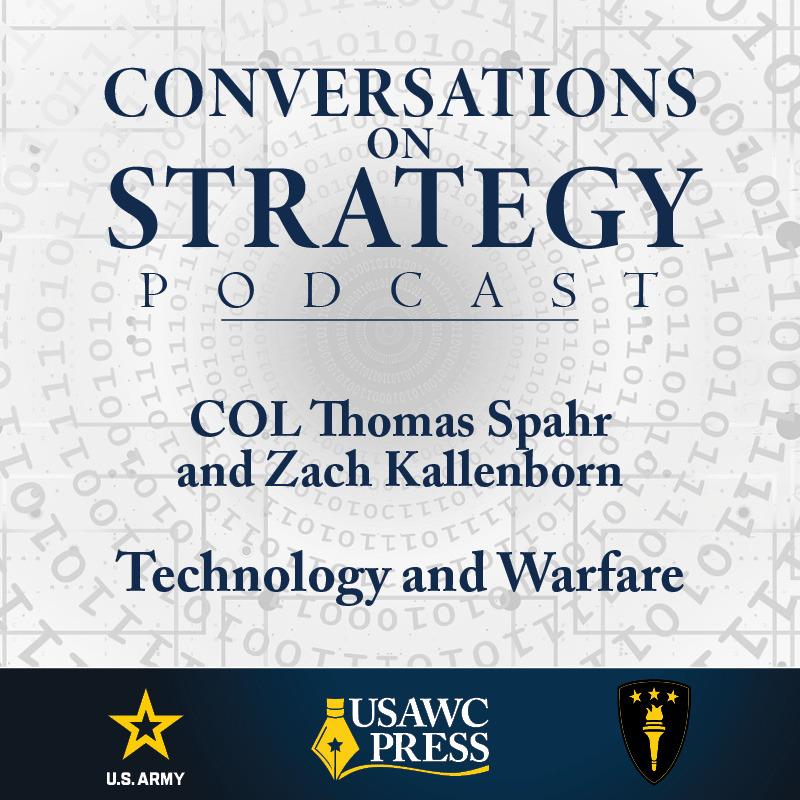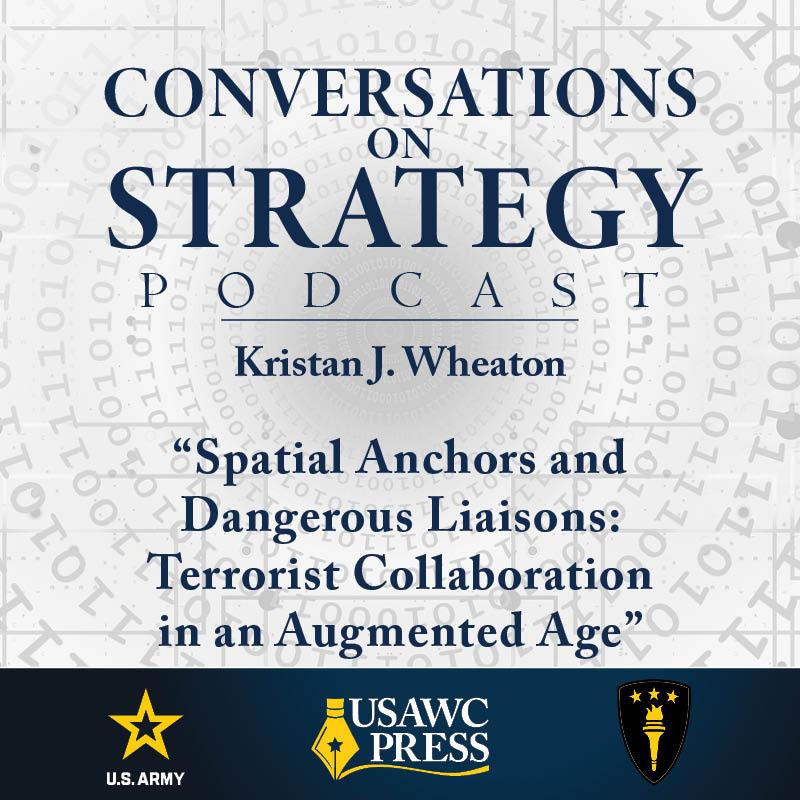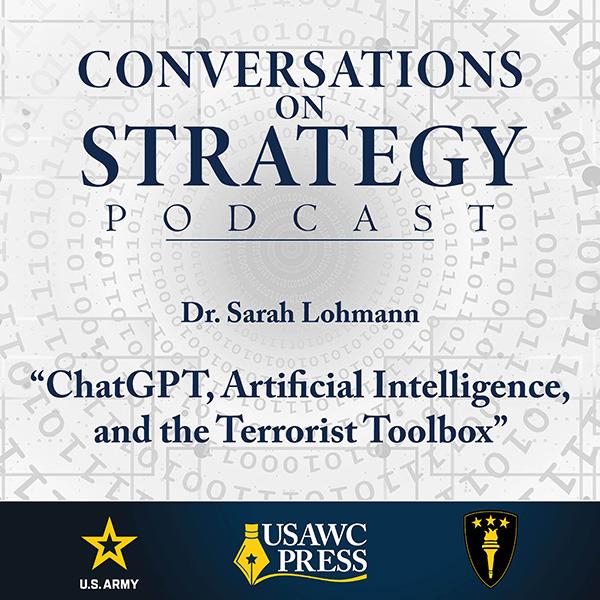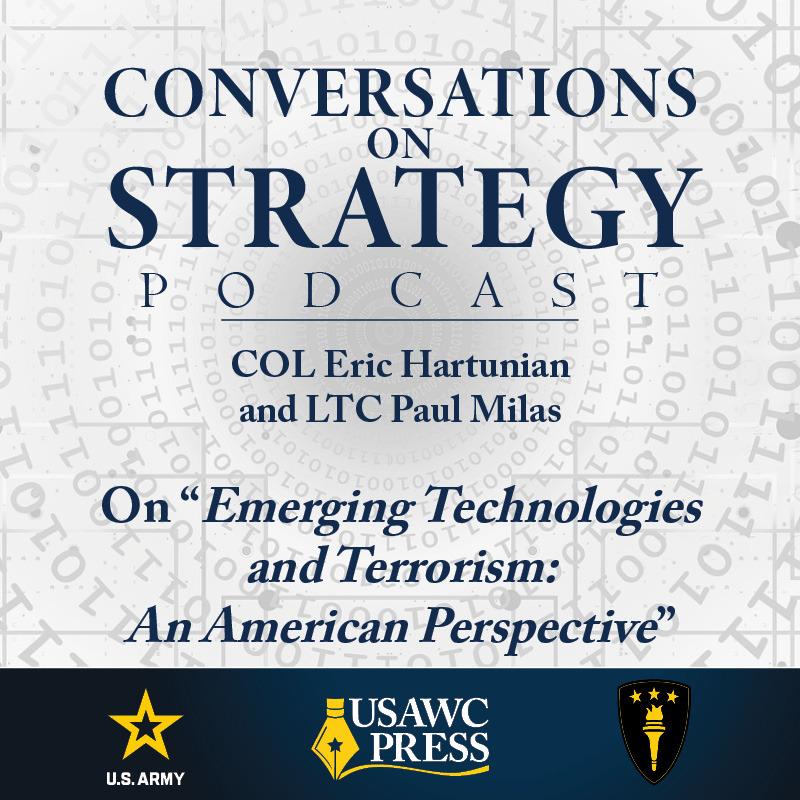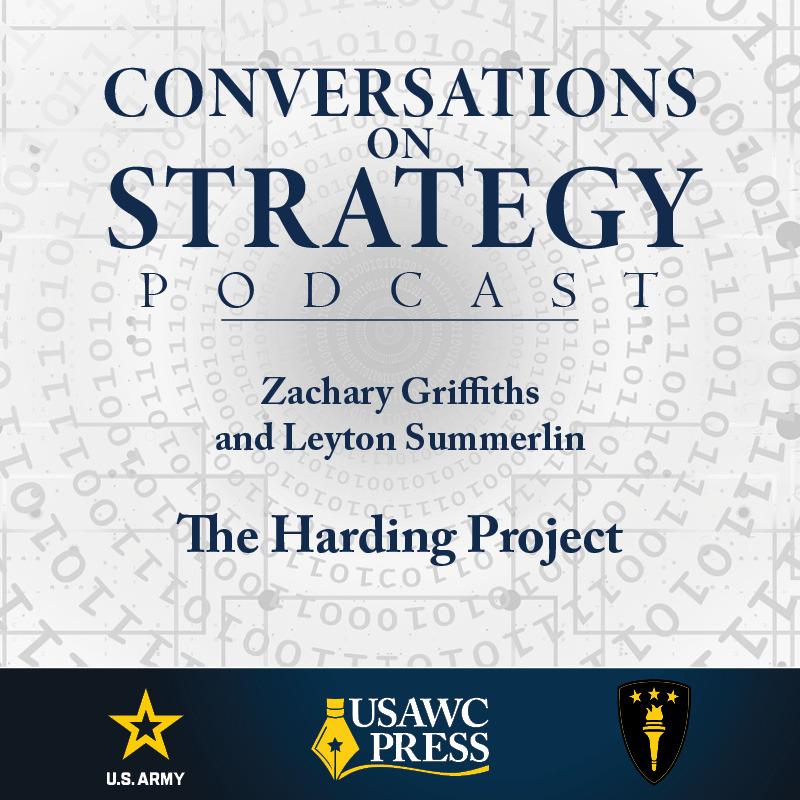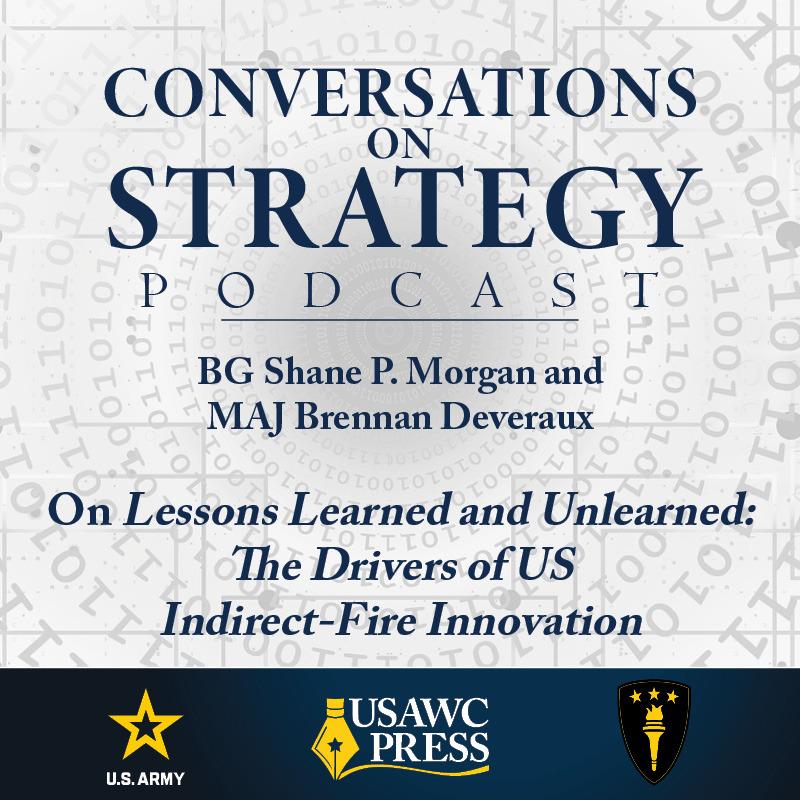Conversations on Strategy Podcast – Ep 57 – LGen Michael C. Wright – On Canada’s Army
Description
Commander of the Canadian Army Lieutenant General Michael C. Wright discusses the Canadian Army, modernization, Ukraine, technology, and more. Listen in for insights about the Canadian Army, its mission, its future, and how America’s neighbor to the north partners with the United States.
Keywords: Canada, Arctic, Canadian Army, technology, modernization
Stephanie Crider (Host)
You are listening to Conversations on Strategy. The views and opinions expressed in this podcast are those of the guests and are not necessarily those of the Department of the Army, the US Army War College, or any other agency of the US government.
Lieutenant General Michael C. Wright, commander of the Canadian Army, is joining me remotely today. Wright enrolled in the Canadian Armed Forces in 1990 as an infantry officer. He has commanded from platoon to brigade and Joint task force levels. He served in Bosnia, Afghanistan, and the Middle East, as well as in Canada. On promotion to Lieutenant General in July 2024, he was appointed as the commander of the Canadian Army.
Welcome to Conversations on Strategy, sir. Thank you for joining me.
Lieutenant General Michael C. Wright
Stephanie, thanks very much for the invitation. [I am] really looking forward to this.
Host
I'd like to open our discussion with land warfare and modernization. Looking at the last three years of fighting in Ukraine, what are your most important takeaways regarding the evolution of land warfare, and how is the Canadian Army modernizing to meet this moment?
Wright
Thanks, Stephanie.
The Canadian Army, like all of our close allies, are paying very close attention to what’s happening on the battlefield in Ukraine. I think I’ll start with three key takeaways and then how it’s shaping what the Canadian Army is doing.
The first one is that it has proven that Landpower absolutely matters. Landpower in terms of the conventional large-scale combat operations capability absolutely matters, which is really driving the modernization effort that we’re doing within the Canadian Army. Not only for the capabilities that we’re trying to bring in, but also for the wholesome review of our force structure that we’ve engaged in.
The second one—and this is one that I actually spend a lot of time thinking about and, frankly, worrying about—is how rapidly technology is evolving on the battlefield. Just looking at drones, for example, the multiple iterations of drones, how they are used—how they’re use for reconnaissance, how they’re used for strike—has changed so many times over the past three plus years, and knowing the challenges that we have in many of our militaries in keeping up with innovation and procuring the equipment that we need in the right time frame.
The third key take away is following on from that rapidly evolving technology, we certainly see the importance of precision, but I always like to remind people that it is not a binary decision between precision or mass. We actually need precision and mass because—I’ll go back to the first part—Landpower matters. And in fact, I think one of the major reasons why we’re seeing this conflict, this war, go on over three years is because that decisive Landpower has not been—certainly in the past year to year and a half—has not been able to be applied at the level that’s required to see a decisive victory by either side.
Host
These are big enough challenges in the present, and I know you’re working a lot on modernization and looking into the future. Can you talk a little bit about your vision for the Canadian Army?
Wright
My vision of the Canadian Army is really building upon the great work that was done by my predecessors. Immediately before coming into command of the Canadian Army, the focus of my predecessor, Lieutenant General Joe Paul, was very understandably on making the transition from our primary force-generation mission, the multinational brigade in Latvia, setting the conditions to move from the battle group level up to the brigade level. What I’m trying to do is the great work that was done there to ensure that all those capabilities that are being put in place in our mission in Latvia are actually going to be able to be scaled across the Canadian Army.
The vision that I’ve laid out is that we need to make sure that we are a credible, interoperable, digitally transformed, modern Army that's capable of offering the government of Canada with agile and scalable options for employment in competition, in crisis, or in conflict. The way that I’ve divided that up in terms of priorities are modernization, reconstitution, and readiness, and it’s a deliberate ordering of those priorities because we need to modernize, and we need to reconstitute our forces both in terms of people and equipment before we can augment our level as readiness.
If you want, I can talk a little bit about the modernization effort that we’ve embarked upon.
Host
I’d love to hear a little bit about that, please.
Wright
Absolutely. Certainly, part of our modernization effort is a wholesale modernization of the capabilities we have in the Canadian Army. We are actually going through the largest modernization since the turn of the century, and that modernization that we did at the turn of the century really set the conditions for the decade plus that we spent in the counterinsurgency fight in Afghanistan, and then, certainly, the operations we were involved with in the Middle East. We have 47 major capital projects, but we all know, and you don’t have to learn this at War College, you can’t go around saying, “I have 47 priorities.” So, the way I describe it are there are four plus one, which are incredibly important for the future of the army. Those four are long-range precision strike; this is a capability that Canada has never had. It’s a capability that will, first of all, be incredibly important as part of that NATO mission in Latvia. But, it’s also a capability that has a continental and Canadian Defense nexus to it.
The second one is ground-based air defense [GBAD]. This is actually a capability that Canada had, but then we divested earlier this century, and certainly lessons learned from Ukraine show the incredible importance of ground-based air defense. Luckily, there we’re already seeing the fielding of some dismounted systems in Latvia, but we’re moving aggressively to bring both dismounted and mounted systems into Latvia, but then also to field them across the Canadian Army and again including GBAD, being a perfect example of where that has a role in the defense of Canada.
The third one is modernization of our indirect fire. So, that’s everything from our mortars up to what is going to be the eventual replacement for our M777 [howitzer 155mm artillery]. I think it’s going to be a self-propelled howitzer. Certainly, as we look at whether it’s the US Army or our closest allies around NATO, they’re all going the self-propelled howitzer route. So, I think that’s where we’ll end up going.
The fourth one is actually directly tied to our defense policy update that our government put out last April, Our North, Strong and Free, which really emphasize the importance of the continent, but then [it includes] Canada and the Arctic for our national defense. And so, that’s domestic and Arctic mobility and enhancement, which is basically having the vehicles that allow us to be mobile and survivable in the Arctic.
Now, I said “plus one,” and that plus one is making sure—it’s one thing to get all of those capabilities in, but we need to make sure that we have the command, control, and communication systems to allow us to integrate them across the Canadian Army, across our Canadian Armed Forces, and probably most importantly with our allies, whether that’s in a NORAD [North American Aerospace Defense Command], a NATO, or another partnership perspective.
Host
I’m really glad that you brought up the Arctic. My next question is about America and Canada. We have shared interests in the Arctic, including security and economic development. Tell me a little bit more about the collaborative efforts between our two countries and maybe share your thoughts on them.
Wright
Absolutely. And, it’s interesting because I was on a panel earlier today where I was side by side with the commander of the Royal Canadian Air Force. If he was here, he would talk to you about the importance of our binational relationship, really a unique binational relationship that we have with the United States through NORAD. Traditionally, from the Canadian Armed Forces perspective, we’ve looked more at the Air Force, and then, over the past decade, the Navy as well, because it’s not only that aerospace, but also maritime approaches [that we need in the Arctic]. But I think it’s important for me to be able to express to our government the role that the Canadian Army can play in continental defense.
I spoke a little bit about some of the capabilities that we’re pursuing and how that will involve the Army more in terms of that homeland defense. It’s also for the Canadian Army right now, we represent the only permanent posture, or the only permanent presence, in the Canadian Arctic with our Rangers [a component of the Canadian Armed Forces Reserve]. Now, our Rangers are not like American [US Army ] Rangers or even [the Swedish Army Rangers]. I had the opportunity to visit Sweden last month and saw their Ranger regiment. What our Rangers are a force of 5,000 people who are located in over 200 isolated and coastal communities in the north and the Arctic. And, in fact, 1,800


